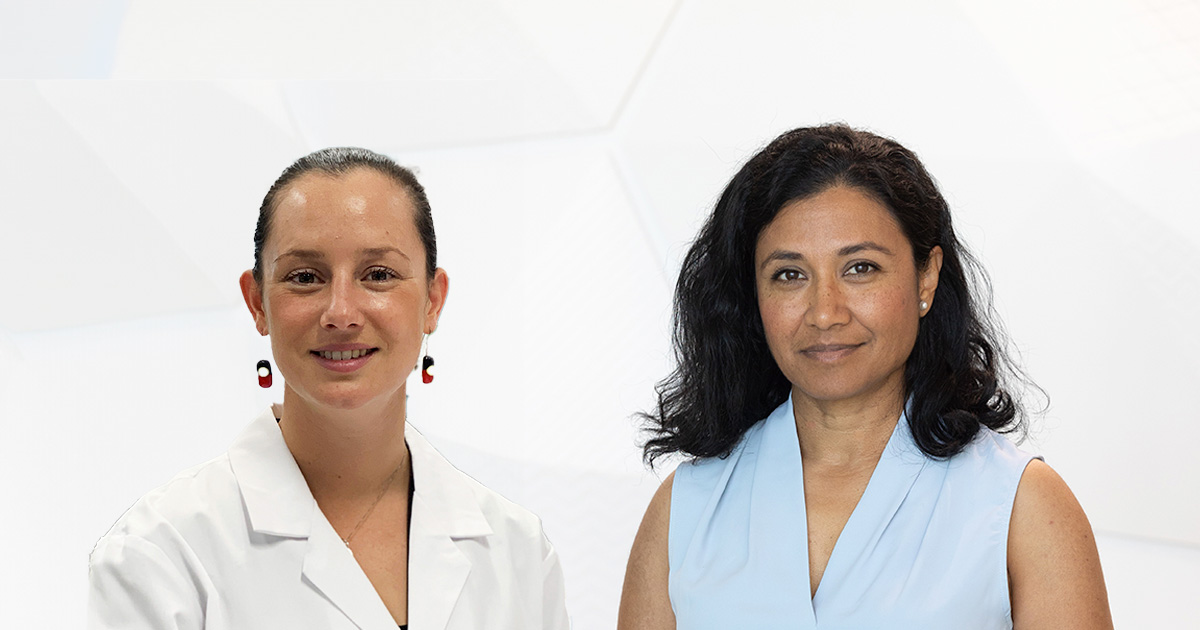
The generous support of Western Australians through Channel 7’s Telethon is helping to fund life-changing child health research, with two The Kids Research Institute Australia researchers awarded significant grants.
The Kids is fortunate to be one of more than 100 beneficiaries funded through Telethon.
Senior Research Fellow Dr Jessica Buck, from the The Kids Cancer Centre’s Brain Tumour Research Team, will lead a unique program led by Aboriginal researchers to establish Australia’s first Indigenous childhood cancer research program.
Cancer claims the lives of more Western Australian children than any other disease. Furthermore, an unacceptable gap exists in cancer outcomes between Indigenous and non-Indigenous children, with very minimal research as to why.
Dr Buck and colleagues based in Perth and Adelaide have been awarded funding through Telethon to investigate why Indigenous children with cancer have poorer outcomes and poorer tolerance to current therapies.
“Our overarching priority and expertise in improving the health and wellbeing of Indigenous children uniquely positions us to lead a national collaboration to investigate the biological and genetic factors causing the gap in childhood cancer outcomes,” Dr Buck said.
“This research also aims to aid in the future development of lifesaving and life-altering treatments for Indigenous children with cancer – too many children successfully undergo cancer treatment, only to have their quality of life severely limited by the long-term side effects caused by treatment.
“While we recognise that there is no quick fix that will close the gap in survival outcomes and quality of life after cancer for Indigenous children, this body of work is a first step and will deliver tangible outcomes.”
Dr Buck said the project was an entirely new area of research, focused on a seriously under-served population.
Dr Buck is currently a Senior Research Fellow based at The Kids Research Institute Australia and The University of Western Australia.
Supporting families navigating early-stage T1D
Senior Research Fellow Dr Aveni Haynes from The Kids Research Institute Australia Rio Tinto Children’s Diabetes Centre, will lead a team of experts to co-design a clinical pathway for kids and their families navigating early-stage type 1 diabetes.
Type 1 diabetes affects 1 in 300 people in the general population, while 1 in 20 people with a first-degree relative are diagnosed with the condition. In Western Australia, more than 150 children are newly diagnosed with type 1 diabetes every year.
Screening programs to identify the early stages of type 1 diabetes are already available in Australia, offering kids a potentially life-changing opportunity for early intervention to delay the progression and the need to start daily insulin treatment.
Dr Haynes’ team have identified that while some families want to know whether their child has early-stage type 1 diabetes so they can be eligible for early intervention, a diagnosis is still alarming news for families to process, and they need to have structures in place to help provide them with advice and care.
“Our work will ensure this significant unmet need for families, living with this news today, is addressed through cutting-edge translational research,” Dr Haynes said.
“We are really excited about the opportunity to hear from families in our community to learn about their needs and points of view, so we can work towards addressing these in a way that will be most helpful for them.
“In developing a pathway that aims to meet the needs of families with a kid who has been identified as having early-stage type 1 diabetes, consumers must be engaged as experts in designing solutions that are acceptable to families and fit for purpose.
“We will also engage leading international experts in type 1 diabetes prevention and risk screening to explore what, if any, solutions are already being used to support families whose children have early-stage type 1 diabetes, that have not been documented in the academic or grey literature.”
The Kids Research Institute Australia Executive Director, Jonathan Carapetis, thanked the Channel 7 Telethon Trust for its ongoing support of child health research in WA.
We’re so grateful for the support of Telethon and the WA public as we work tirelessly to improve the lives of West Australian kids and families. We’re able to take on some of the most difficult challenges in child health research, knowing that we have the support of the West Australian public, through Telethon.
